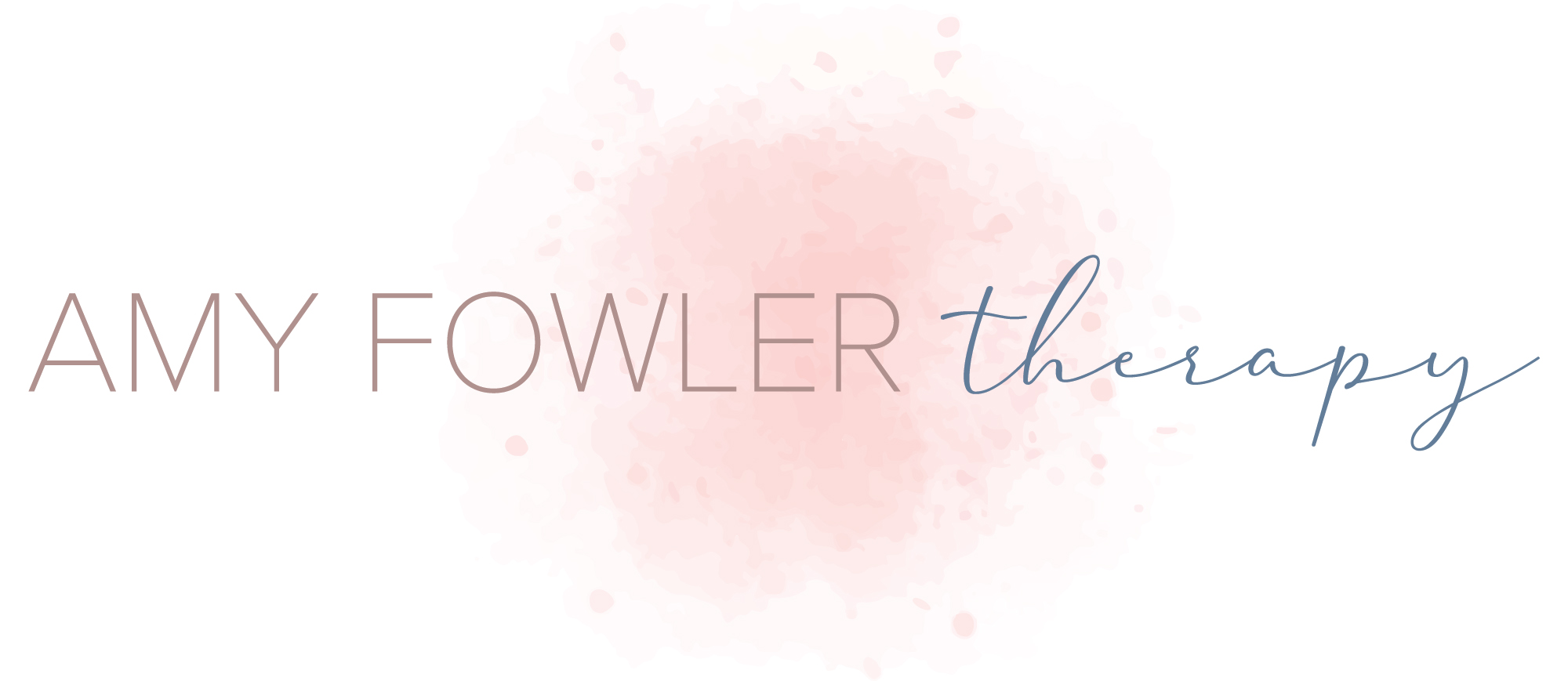Therapy for Teenagers & Adolescents Haslet, TX

Your Teen's Path to Wellness Begins Here
As parents, watching our teenagers grapple with emotional and mental health challenges can be incredibly overwhelming. You want the best for your teen, and seeking professional help can make all the difference.
Mental health is a large part of an adolescent’s overall well-being. Just like physical health, nurturing good mental health from a young age through accessible and effective therapy can profoundly impact a teen’s development, happiness, and ability to thrive in everyday life. Left unaddressed, mental health issues can affect an adolescent’s emotions, thoughts, behavior, and academic performance.
Amy Fowler Therapy is dedicated to providing compassionate and expert care for teenagers in Haslet, TX, and the Fort Worth area. We understand the unique challenges teens face and offer tailored therapy solutions to help them navigate this critical stage of life with confidence and resilience. Our goal is to empower your teen to overcome obstacles, develop healthy coping mechanisms, and build a strong foundation for a bright future.
Amy Fowler:
Expertise and Experience

Amy Fowler, a seasoned school counselor and Licensed Professional Counselor Associate (LPCA), is dedicated to helping children move towards wholeness. With over 17 years of experience working with children and adolescents, Amy has honed her skills in addressing a wide range of mental health issues. She holds a Master’s degree in Counseling and specializes in working with children. She has extensive experience helping adolescents who have special needs, including learning disabilities, ADHD, autism spectrum disorder, behavioral issues, and emotional disturbances.
Amy’s unique approach combines evidence-based techniques to create a supportive and judgement-free environment where teens can thrive. Her extensive experience and deep understanding of developmental psychology allow her to tailor her methods to meet each adolescent’s unique needs, fostering growth and development in every aspect of their lives. Amy’s passion shines through in her commitment to helping adolescents and their families in Haslet, TX, and the Fort Worth area.
At Amy Fowler Therapy, we believe that every teen deserves the chance to lead a happy, healthy, and fulfilling life. Our comprehensive therapy services are designed to support your child’s mental health, emotional well-being, and overall development, ensuring they have the best possible start in life.
Benefits of Teen Therapy at Amy Fowler Therapy
Choosing the right therapist for your teen can make a significant difference in their overall well-being and development. At Amy Fowler Therapy, we are dedicated to providing exceptional care that addresses the unique needs of each adolescent. Here are the key benefits of teen therapy at our practice:
Better Emotional Regulation
Self-Esteem and Confidence
Therapy aids teens in enhancing their self-esteem and confidence by guiding them to confront and overcome personal challenges while setting and achieving meaningful goals. By integrating positive reinforcement, practical skill-building exercises, and a safe, encouraging environment, teens begin to recognize their own strengths and value. This growth in self-esteem and confidence equips them with the resilience and optimistic perspective needed to tackle life’s hurdles, paving the way for a brighter and more fulfilling future.
Improved Mental Health
Teen therapy significantly enhances mental health by providing effective strategies to reduce anxiety and depression. Through evidence-based approaches such as cognitive behavioral therapy (CBT) and mindfulness practices, teens learn to identify and challenge negative thought patterns, develop healthier coping mechanisms, and manage stress more effectively. This therapeutic process not only alleviates symptoms of anxiety and depression but also empowers teens with the tools to maintain emotional stability. As a result, they experience a reduction in emotional distress, improved mood, and a more positive outlook on life, enabling them to thrive both personally and academically.
Stronger Family Relationships
By involving parents and family members in the therapeutic process, we help improve communication, resolve conflicts, and strengthen family bonds. Stronger family relationships provide a supportive and nurturing environment that is essential for a teen’s growth and development. Parents gain valuable insights and tools to support their teen’s mental health, creating a harmonious and loving family dynamic.
Motivation and Work Ethic
Teen therapy enhances motivation and cultivates a strong work ethic, which are vital for emotional health. By setting realistic goals, managing time effectively, and building perseverance, teens boost their self-esteem and resilience. Therapy offers a supportive environment to explore interests and overcome obstacles, fueling intrinsic motivation and reducing anxiety. Cognitive-behavioral techniques promote proactive behaviors and a growth mindset. As a result, teens develop confidence and advocacy skills, empowering them to tackle challenges and achieve success while maintaining emotional well-being.
Schedule Your First Session
Parent Intake Session
If your adolescent is under the age of 18, an initial 90-minute parent intake is required. The cost for this intake is $125.
Each subsequent 50-minute session for your child or teen is $115.
Amy will discuss the suggested frequency of appointments with you during the intake session as she learns more about your child or teen.
Amy Fowler Therapy is private pay. Although we do not accept insurance, we do accept payment with your HSA or FSA card.
Understanding Therapy for Teens
Teen therapy, also known as psychotherapy, is a specialized branch of mental health care designed to help navigate and overcome psychological, emotional, and behavioral challenges. The primary objective of therapy is to support mental health by providing a safe and nurturing environment where they can express their feelings, thoughts, and experiences. Through various therapeutic techniques, mental health professionals work to improve a teen’s emotional regulation, social skills, and cognitive functioning, ultimately fostering a healthier mind and overall well-being.
Signs Your Teen Might Benefit from Therapy
Recognizing when a teenager may need therapy can be challenging, as adolescence is a period marked by significant emotional, social, and physical changes. However, certain signs can indicate that professional help might be necessary. Here are some key indicators:
Behavioral Changes: Drastic shifts in a teen’s behavior or mood can be significant indicators that professional help may be needed. Parents should be alert to signs such as withdrawal from family and friends, loss of interest in previously enjoyed activities, or sudden changes in sleeping habits and personality. Persistent feelings of sadness, hopelessness, worry, or anger that seem out of proportion or uncharacteristic for the teen may also warrant attention. Additionally, if mood swings are causing severe distress multiple times per week and making family members feel overwhelmed or frightened, it could be time to consider therapy.
Academic Disruptions: Declining grades, difficulty concentrating, or a sudden refusal to do homework can signal underlying emotional or mental health issues requiring professional intervention. If a previously strong student shows a marked drop in performance or withdraws from extracurricular activities they once enjoyed, it may indicate they are struggling to cope with psychological or emotional challenges.
Eating Changes: Sudden changes in eating habits or significant weight fluctuations can be warning signs of underlying mental health issues or eating disorders in teenagers. If a teen exhibits secretive eating behaviors, evidence of bingeing or purging, or makes frequent negative comments about their body, it may be time to seek professional help. These behaviors can indicate attempts to cope with anxiety, depression, or other emotional difficulties, and early intervention is crucial to prevent more severe health problems and promote a positive self-image.
Substance Abuse: Parents should be vigilant for signs of substance abuse, including alcohol or drug use, which may indicate attempts to cope with anxiety, depression, or other emotional difficulties. Any indication of habitual substance use should be addressed promptly, as it can potentially spiral into addiction and cause significant problems in school and relationships. Early detection and intervention can prevent the escalation of substance abuse and help teens develop healthier coping mechanisms.
Social Indicators: Sudden changes in a teen’s social circle, such as having all new friends or isolating themselves from peers, can be a red flag for underlying issues. These social shifts may indicate attempts to cope with anxiety, depression, or other emotional difficulties.
Self-harm: If your adolescent or teen is self-harming, this is a serious issue that requires immediate attention. This may manifest in various forms such as cutting or burning, often serving as a coping mechanism for overwhelming emotions or unresolved trauma. Common signs include unexplained injuries, wearing long sleeves to hide marks, and sudden behavioral changes.
Common Issues Addressed in Teen Therapy
Teen and adolescent counseling addresses a wide range of issues that can impact a teenager’s mental health and development. Some of the common issues include:
- Depression: Treatment focuses on improving mood, increasing engagement in activities, developing coping skills, and addressing feelings of hopelessness or worthlessness.
- Anxiety Disorders: Therapy helps teens manage symptoms of various anxiety disorders, including generalized anxiety, social anxiety, panic disorder, and specific phobias.
- Substance Abuse: Counseling addresses drug and alcohol use, providing support for recovery and developing healthier coping mechanisms.
- Eating Disorders: Treatment for conditions such as anorexia, bulimia, and binge eating disorder, focusing on body image, self-esteem, and healthy eating habits.
- Self-Harm: Therapy helps teens who engage in self-injurious behaviors to develop alternative coping strategies and address underlying emotional issues.
- Self-Esteem Issues: Counseling supports teens in building self-confidence.
- Family Conflicts: Therapy addresses difficulties in family relationships, communication issues, and coping with divorce or family changes.
- Academic Pressure and Stress: Counseling helps teens manage academic stress, test anxiety, and performance pressure, as well as addressing strategies to help ADHD.
- Peer Relationships and Social Skills: Therapy supports teens in navigating complex social dynamics, bullying issues, and developing healthy friendships and romantic relationships.
- Trauma and PTSD: Counseling helps teens process and heal from traumatic experiences, including abuse, violence, or significant losses.
- Mood Disorders: Treatment for bipolar disorder and other mood disorders focuses on emotional regulation and stability.
- Technology Addiction: Therapy addresses excessive use of social media, gaming, or other digital platforms that interfere with daily life and relationships.
- Behavioral Issues: Counseling helps with conduct problems, oppositional behavior, and anger management.
- Transition and Life Changes: Therapy support for major life transitions such as changing schools, moving, or preparing for college and adulthood.
- Grief and Loss: Therapy helps teens cope with the loss of loved ones, significant relationships, or other major life changes.
Evidence-Based Therapeutic Techniques
Cognitive Behavioral Therapy (CBT) is a widely used and researched technique for teens. It helps adolescents identify and change negative thought patterns and behaviors, teaching them to restructure their thinking to more closely reflect reality. CBT is particularly effective for treating anxiety, depression, and stress-related issues.
Mindfulness-Based Therapies incorporate meditation, breathing exercises, and body awareness techniques. These approaches help teens manage stress, anxiety, and improve overall emotional well-being. Mindfulness can be integrated with other therapeutic approaches and teaches adolescents to stay present and respond thoughtfully to challenges.
Expressive Arts Therapies, including art therapy, music therapy, and drama therapy, allow teens to express emotions through creative mediums. These approaches are particularly useful for adolescents who struggle with verbal expression and can reveal subconscious thoughts and feelings.
Solution-Focused Brief Therapy (SFBT) emphasizes identifying solutions rather than dwelling on problems. It helps teens set concrete, achievable goals and focuses on strengths and past successes to build confidence. SFBT is typically short-term and highly practical in its approach.
Tailored Approach for Teens with Special Needs
Amy is a former special education teacher who specializes in working with children with special needs, including autism spectrum disorder, ADHD, learning disabilities, and emotional disturbance. She ensures that each teens’s unique requirements are met with love and acceptance. Our tailored approach involves:
- Individualized Treatment Plans: Every teenager is unique, and so are their therapeutic needs. We create personalized treatment plans that cater to the specific challenges and strengths of each child.
- Collaborative Care: We believe in working closely with parents, teachers, and other health care professionals to provide comprehensive support for adolescents. This collaboration is important during the teen years, because many teens will interact with multiple educators within a single day. This collaborative approach ensures that the child receives consistent care across different environments, promoting their overall well-being.
- Specialized Interventions: Introduce interventions that address unique challenges. Techniques such as social skills training, communication enhancement, and academic support strategies are integrated into the therapy process to help teens succeed in all areas of life.
Your Teen's Therapy Process
Initial Consultation and Assessment
At Amy Fowler Therapy, we believe that gaining an understanding of your teen is essential for effective treatment. Our therapy process begins with a comprehensive 90-minute parent intake session, where the teen does not attend. During this session, Amy sits down with the parents or caretakers to fully capture the teen’s history, and any specific issues/concerns that have led them to seek counseling. This thorough assessment helps Amy gain valuable insights into the teens’s unique needs, strengths, and challenges. We then work with the parent to develop therapy goals for the adolescent. The initial intake session costs $125 and provides a solid foundation for developing an effective treatment plan.
Ongoing Support
Therapy for teens is an ongoing process that requires parent feedback and adjustments to be effective. At Amy Fowler Therapy, we provide the first parent check-in after 3 sessions at no cost. During this parent check-in session, we evaluate how therapy is going and the frequency at which therapy is recommended. This also gives the parent a dedicated time to let Amy know of any recent concerns that may have developed since beginning therapy. While Amy does parental check-ins, the specifics your teen shares in session are kept confidential. This builds trust and is an ethical requirement for any licensed counselor.
FAQs about Teen Therapy in Haslet, Fort Worth, and Keller
What should I bring to the initial parent intake session?
For the initial parent intake session, please bring any relevant documents such as school reports, previous psychological evaluations, medical records, and any other information that can help provide a comprehensive understanding of your teen’s background and current issues.
How do you handle confidentiality, especially when working with teens?
Confidentiality is of utmost importance in therapy. I ensure that all information shared during sessions is kept confidential, with the exception of situations where there is a risk of harm to the teen or others. With teens, I also discuss confidentiality in a way they can understand and let them know what information may need to be shared with their parents.
Can you provide therapy sessions via telehealth if we can’t make it to the office?
While I understand the convenience of telehealth, I believe that in-person sessions are crucial for effective teen therapy. Telehealth does not allow for the level of engagement and observation of body language that is often necessary to fully understand and help adolescents. Therefore, I do not offer telehealth sessions for teens at this time.
How do you involve parents in the therapy process?
Parents are integral to the therapy process. I involve parents by providing a no-cost parent check-in session as well as offering guidance on how to support their teen at home. Your insights and observations are valuable in creating an effective treatment plan.
What should I expect during my teens’s first therapy session?
During your teen’s first therapy session, I will work to build rapport and create a comfortable environment. We will engage in ways that help your pre-teen or teen feel at ease while we get to know each other and build trust. I gather information about their feelings, thoughts, and behaviors. The goal is to establish a foundation for a trusting therapeutic relationship.
What is your experience with teens who have experienced trauma?
I have experience working with clients who have experienced trauma. I utilize trauma-informed care practices to help adolescents process their experiences and develop healthy coping mechanisms. I use engaging and teen-friendly activities to make therapy enjoyable and help them feel more comfortable. Patience and consistent support are key to overcoming resistance.
How do you address bullying issues in therapy?
In therapy, we address bullying by helping your student develop resilience, assertiveness, and coping strategies. We also work on improving their social skills and self-esteem.
How long does a typical therapy session last, and how often will my child need to attend?
A typical therapy session lasts 50 minutes. The frequency of sessions depends on the adolescent’s needs, but it is usually once a week. As progress is made, sessions may be reduced to twice monthly or monthly.
What should I do if I have concerns about my teen’s progress?
If you have concerns about your teen’s progress, please feel free to discuss them with me during a parent check-in meeting or contact me directly. Open communication is essential, and I am here to address any concerns and adjust the treatment plan as needed.
Do you provide a medical diagnosis?
No, as a Licensed Professional Counselor Associate (LPCA), I do not provide medical diagnoses. However, I can conduct assessments to understand your teen’s mental health needs and collaborate with medical professionals, such as child psychiatrists and pediatricians, who can provide medical diagnoses if necessary.
What is the process if we need to change or update the treatment plan?
If the treatment plan needs to be changed or updated, I will discuss the proposed changes with you and explain the rationale behind them. We will collaboratively agree on the new approach and set updated goals to ensure the plan remains effective and relevant to your teen’s needs.
Where are your services located?
I offer in-person therapy sessions in Haslet, TX, near Fort Worth, TX. Many of our clients live in Haslet, Keller, Saginaw, Rhome, and the areas surrounding Fort Worth.
